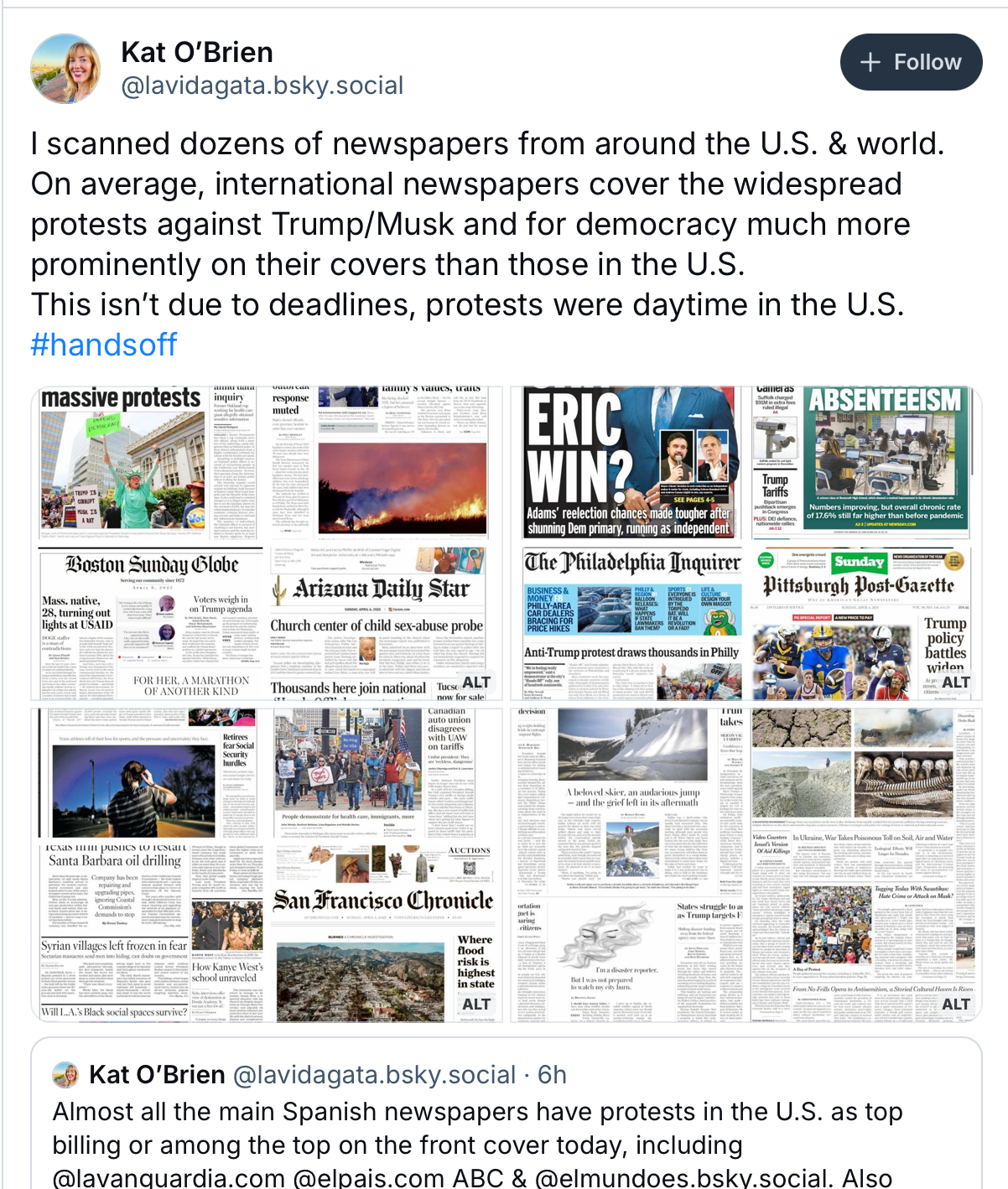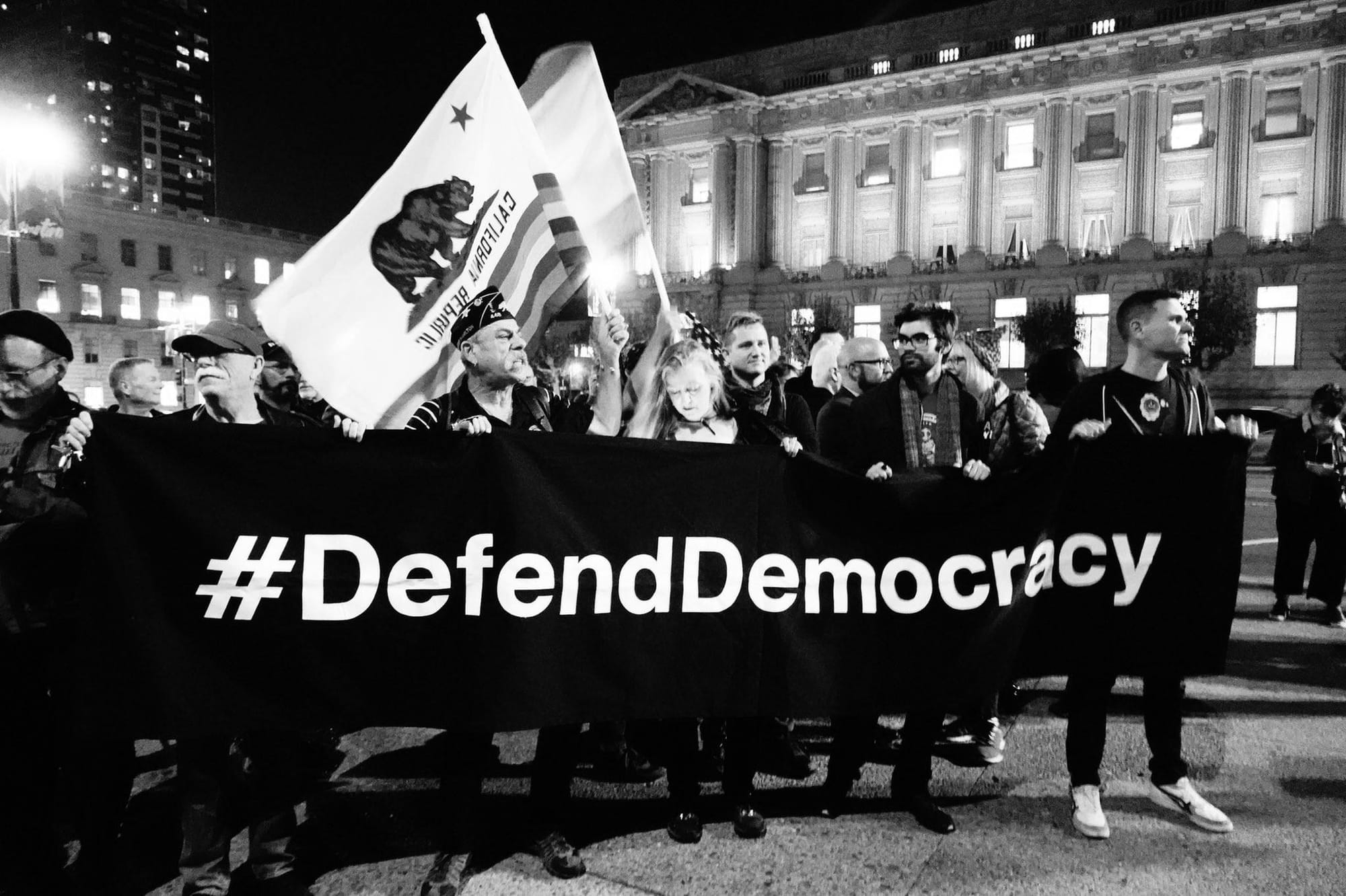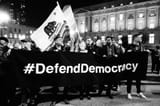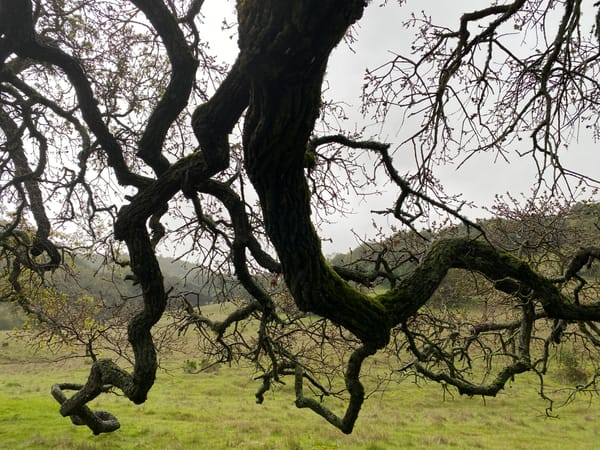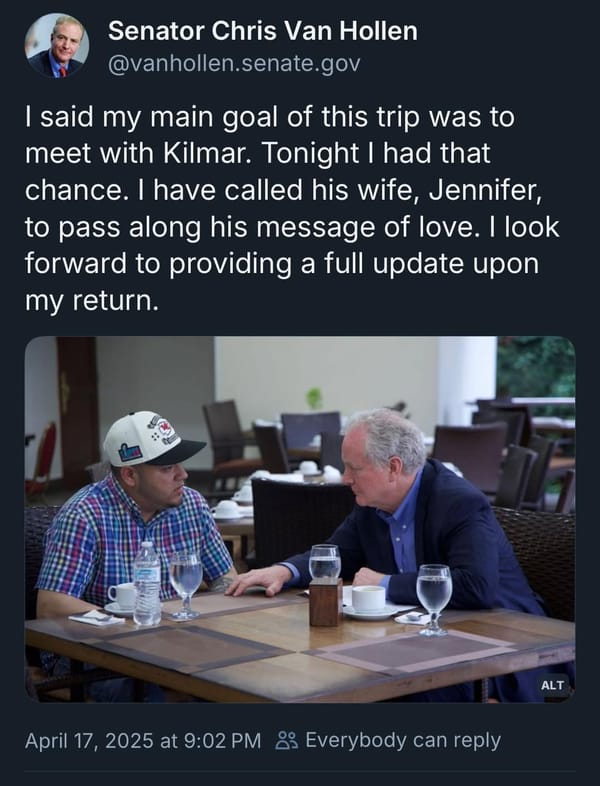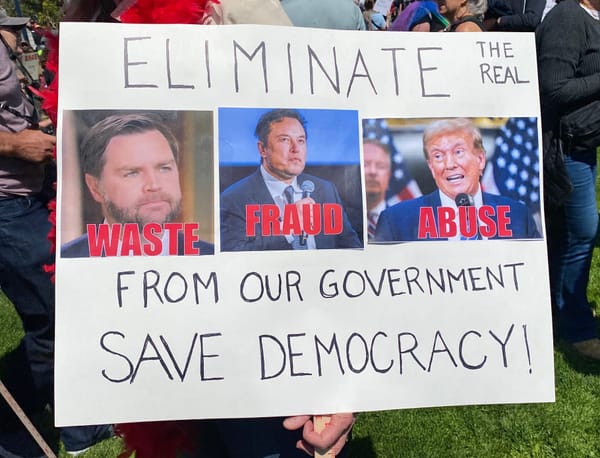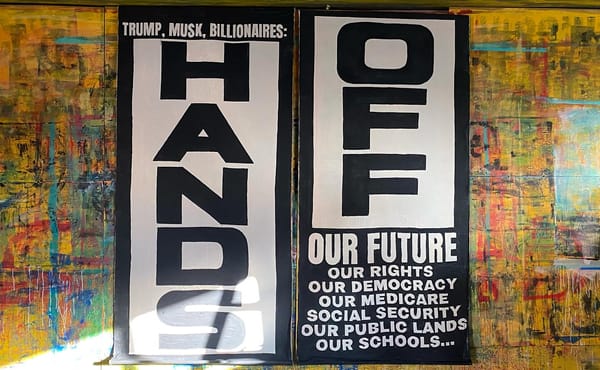Millions Stood Up: April 5 Hands Off Day of Action
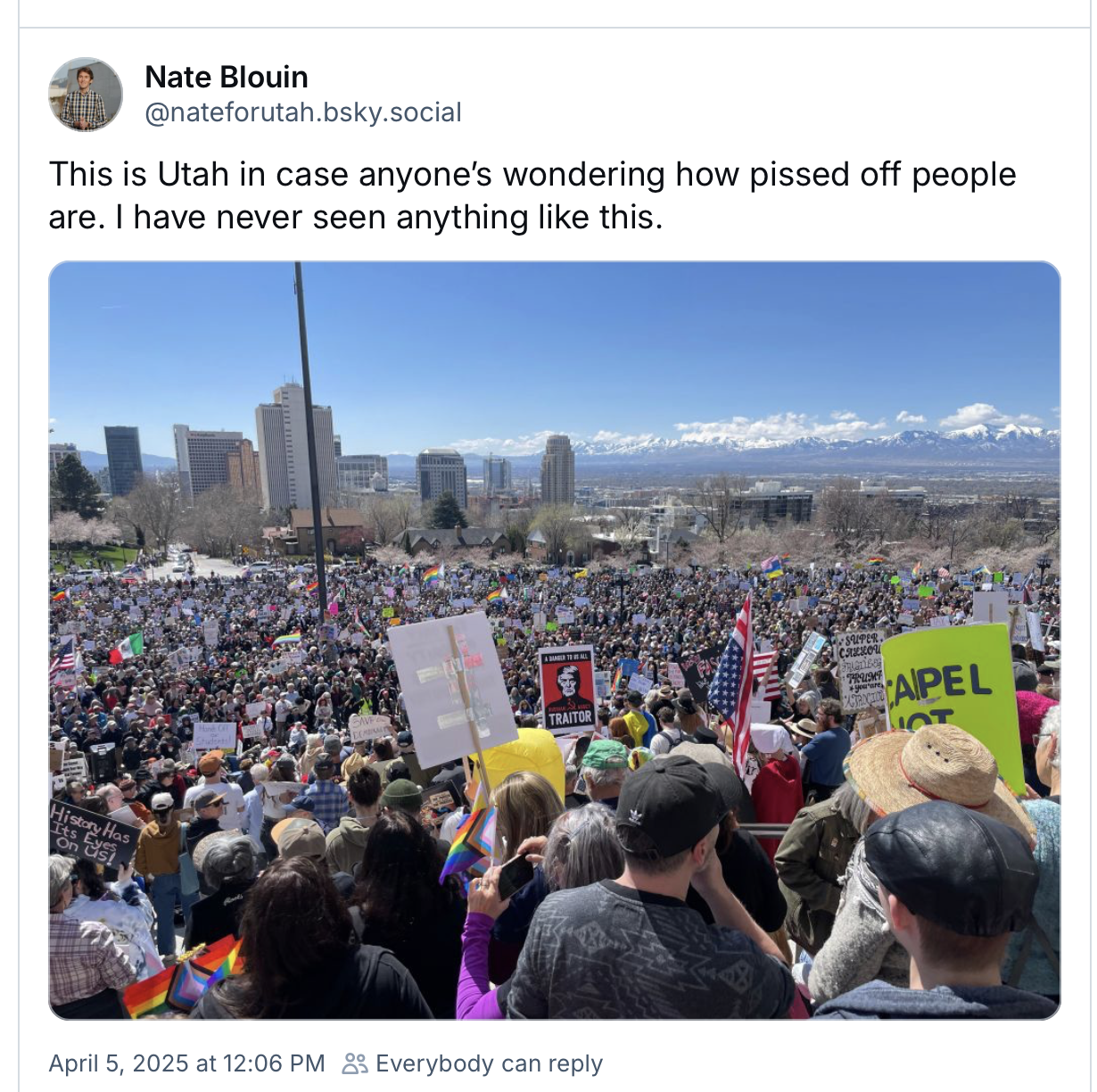
I was the closing speaker at the ebullient San Francisco Hands Off rally, and when I got home later I scoured the news for reports on the more than one thousand other rallies. Of course people would show up in the big cities and the bluest places, but what really exhilarated me was to see the turnout in reddest America--Utah, Nebraska, Missouri, Indiana, Iowa, Idaho--and small communities not known for their protests. People stood up for their principles in the cold in Alaska and the rain in the Northeast and the heat in St. Augustine Florida. I'm impatiently waiting for the Crowd Counting Consortium to give us numbers, but some early estimates say well over three million people showed up.
Their data demonstrated that the January 21, 2017, Women's March was the biggest single day of protest in US history, but early evidence suggests to me that yesterday exceeded it, possibly by a lot. The journalist L.A. Kauffman, who's written excellent histories of protest movements and nonviolent activism, commented on BlueSky "A massive decentralized movement like this – everywhere all at once, with everybody pitching in – is extremely difficult for any regime, even the most autocratic, to derail. There are too many leaders, coordinating in too many different ways, for a movement like this to be easily neutralized. And while you usually can't tell the true effect of a protest until long after it's over, today's actions have already made a major impact where we most needed it right now: on people's morale. That in itself is a win."
My Hands Off talk follows.
I have news for you. We can do this. We can meet this moment. We are doing it today, and today is a great day, a historic day, a day when global civil society says hands off to would-be dictators and destroyers, hands off our social security, our national parks, our heath and human services, our elders, our children, our immigrants, our trans friends, our people with disabilities and our people with dissenting opinions. We can do this, not with one day of protest but with organizing and showing up and donating and supporting and speaking up for however long it takes.
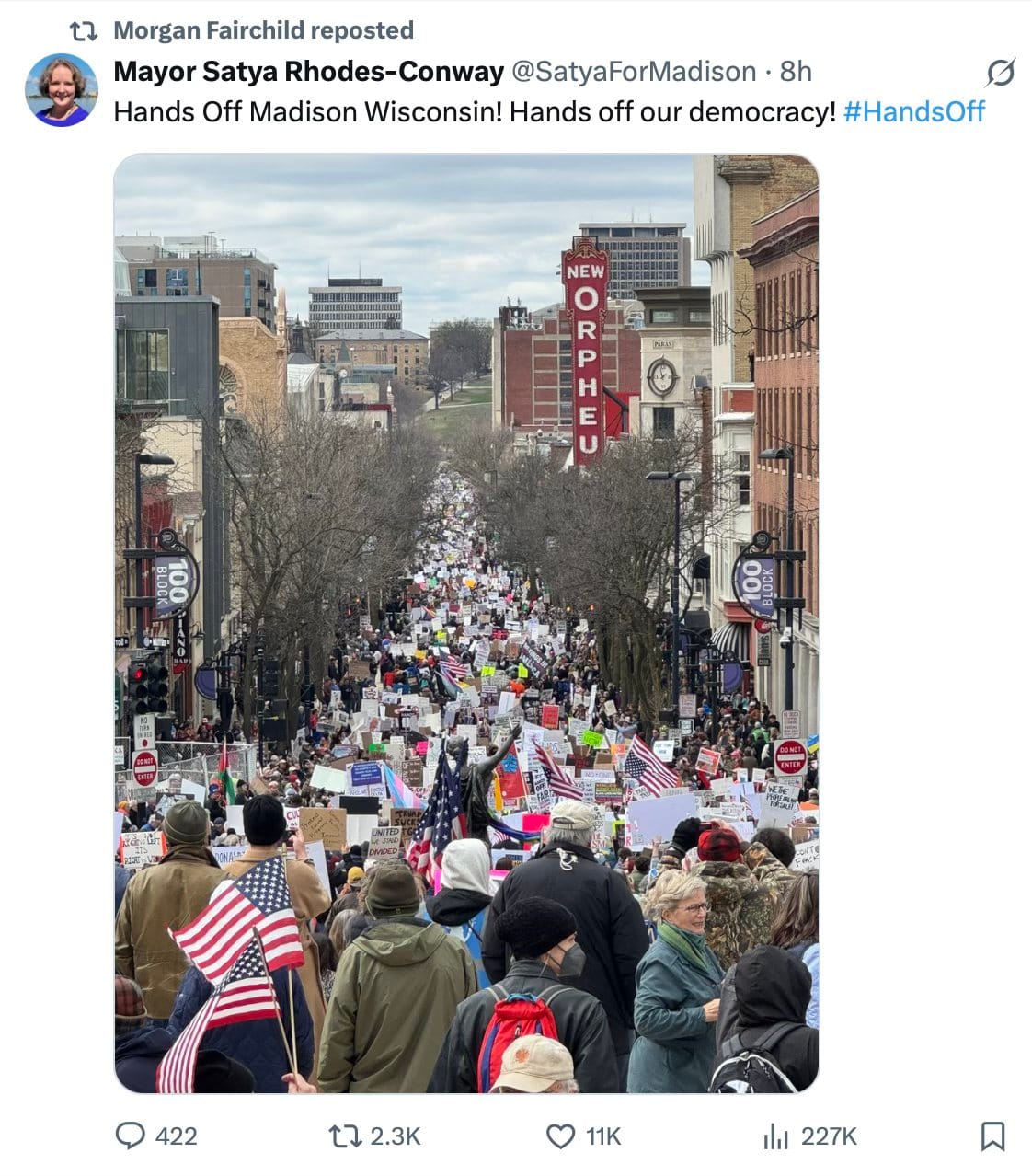
Because this regime will not last forever. It may not last four years. And here's something I know and you know and they don't know: when they destabilized the most stable democracy in history, they opened up the possibilities. They think they have all the power, because they don't understand power. They don't understand that we have power, but we do. What happens next is partly in our hands.
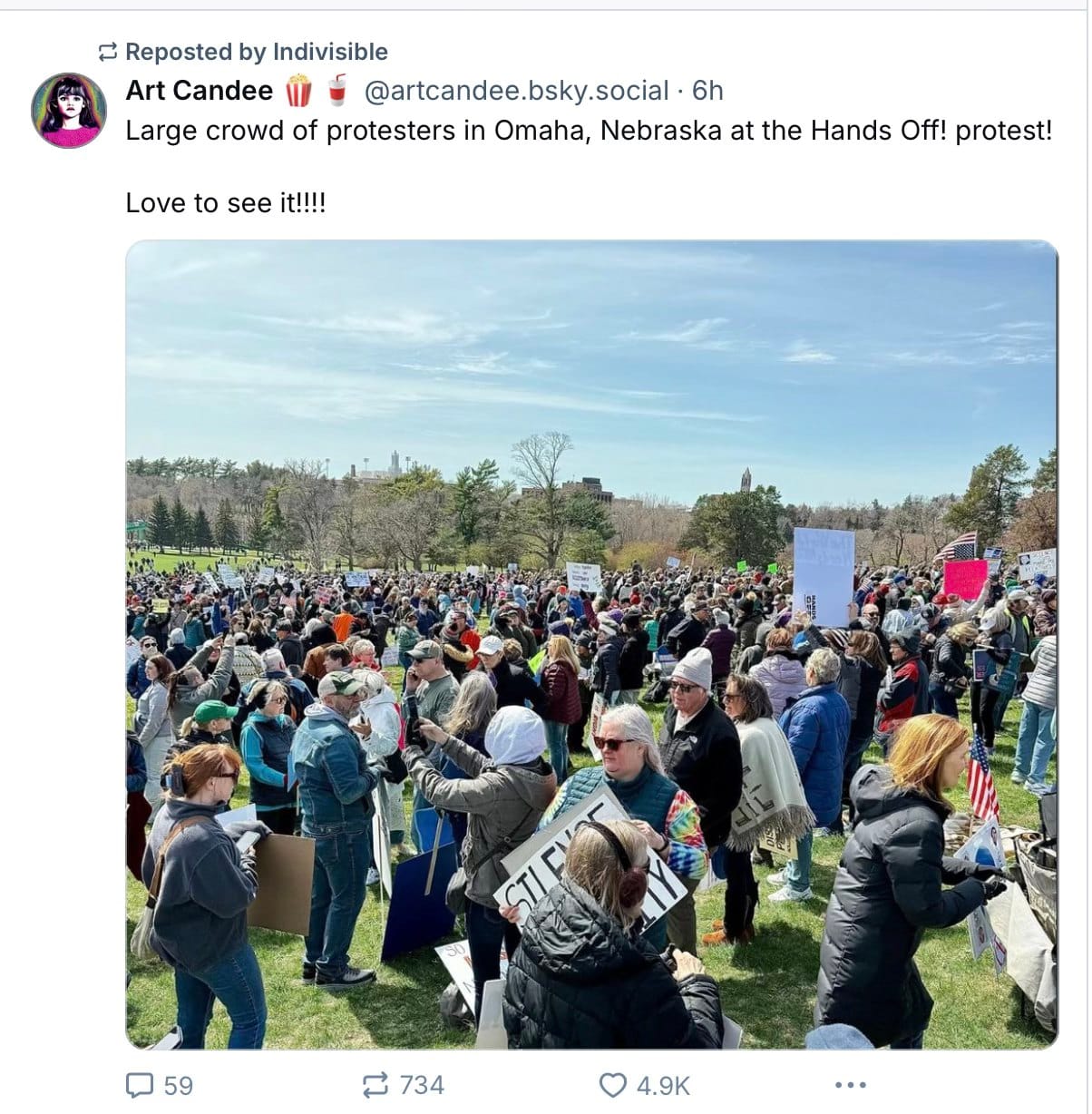
We can write the next chapters of this country's history if we stand up, show up, speak up, stick together, stay committed. I don't know how we'll do it, because we have never been in this kind of catastrophe before, and we're maybe going to do things we never did before. I am hoping young people invent, as they have so many times, new ways of resisting, protesting, disobeying.
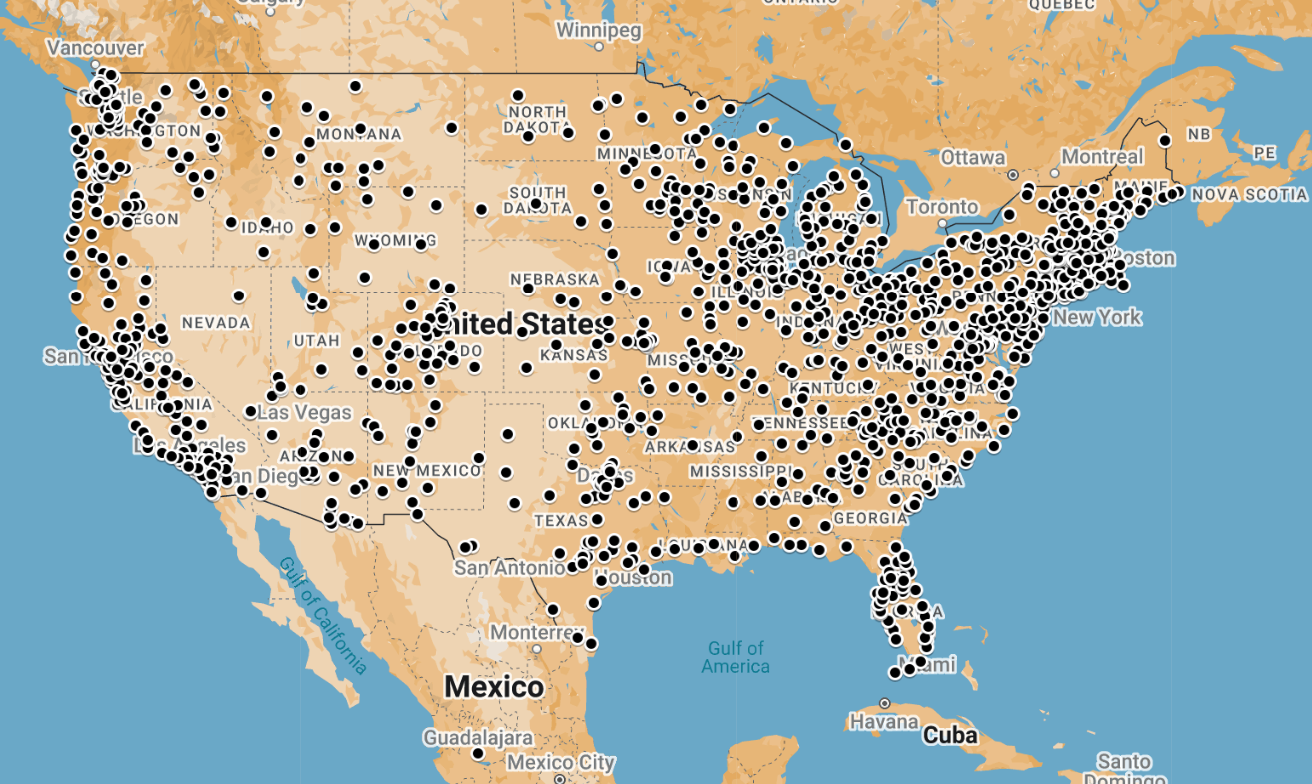
[Map of registered protests nationwide--and what's up with that one in Guadalajara?]
There are 1280 US protests listed for today and many more not on the list. THAT is BIG. 686 were counted in the US for the January 21, 2017, Women's March, in which 1% of the country marched, and that was until today the biggest single day of protest in this country's history. Today there are nine protests listed in Alabama. 21 in Arizona. 11 in Kentucky. Get this: 137 in California! 1280 on the list and a whole lot not listed.
This is already a great day in American history and here we are part of it. But not just American history. They've already stood up and said hands off in London, Paris, Berlin, Lisbon, Amsterdam. The world is against this regime, the world except for the authoritarians who would be thrilled to welcome the US to their ranks. But we won't let them. At least I hope we won't.
I am not saying we will do this. For that we'd have to be patiently passionate and passionately patient. We'd have to stick to our principles, keep showing up and keep standing up even when it looks bleak. We have to do the right things even when the consequences of our actions might not be immediately obvious. We have to persevere even if it is scary, and by that we, I mean those of us least at risk on behalf of those most at risk. We can do this.
Will we do it? Are you in? For the long haul?
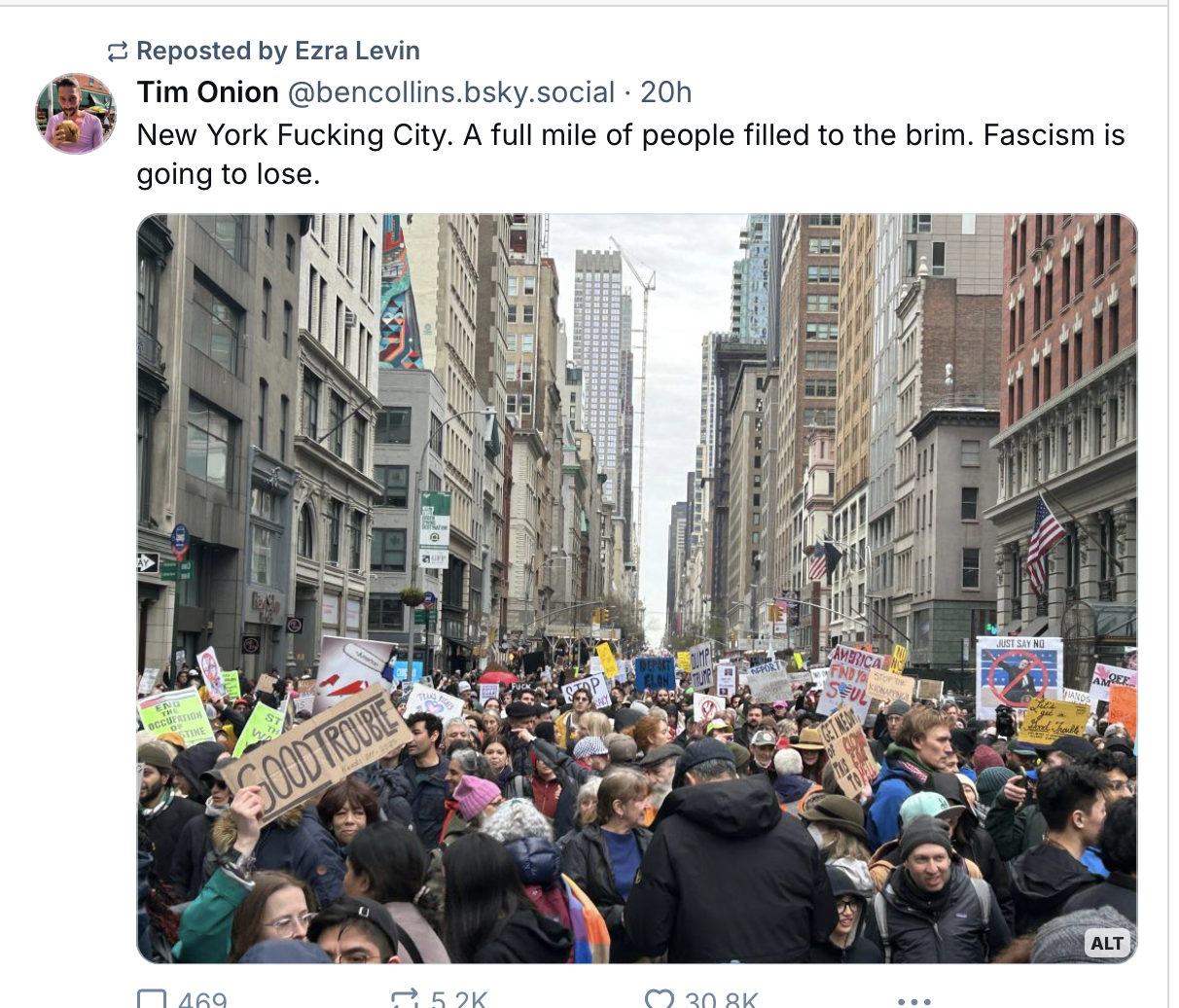
The way we get through this is together. That means coalitions, means sticking together with what we have in common, which is opposition to this regime and its attack on human rights, on justice, on truth, on science, on education, on libraries and books, on national parks and nature and forests, on climate and human health, on research, on freedom of thought and expression.
It means finding common ground with people who share our commitment to restoring human rights, environmental protections, a functioning federal government, the rule of law. Some of those people may not agree with us on everything. We are going to need to value what we have in common when it comes to these important things and love or at least tolerate what makes us different. After all we're fighting an attack on diversity.
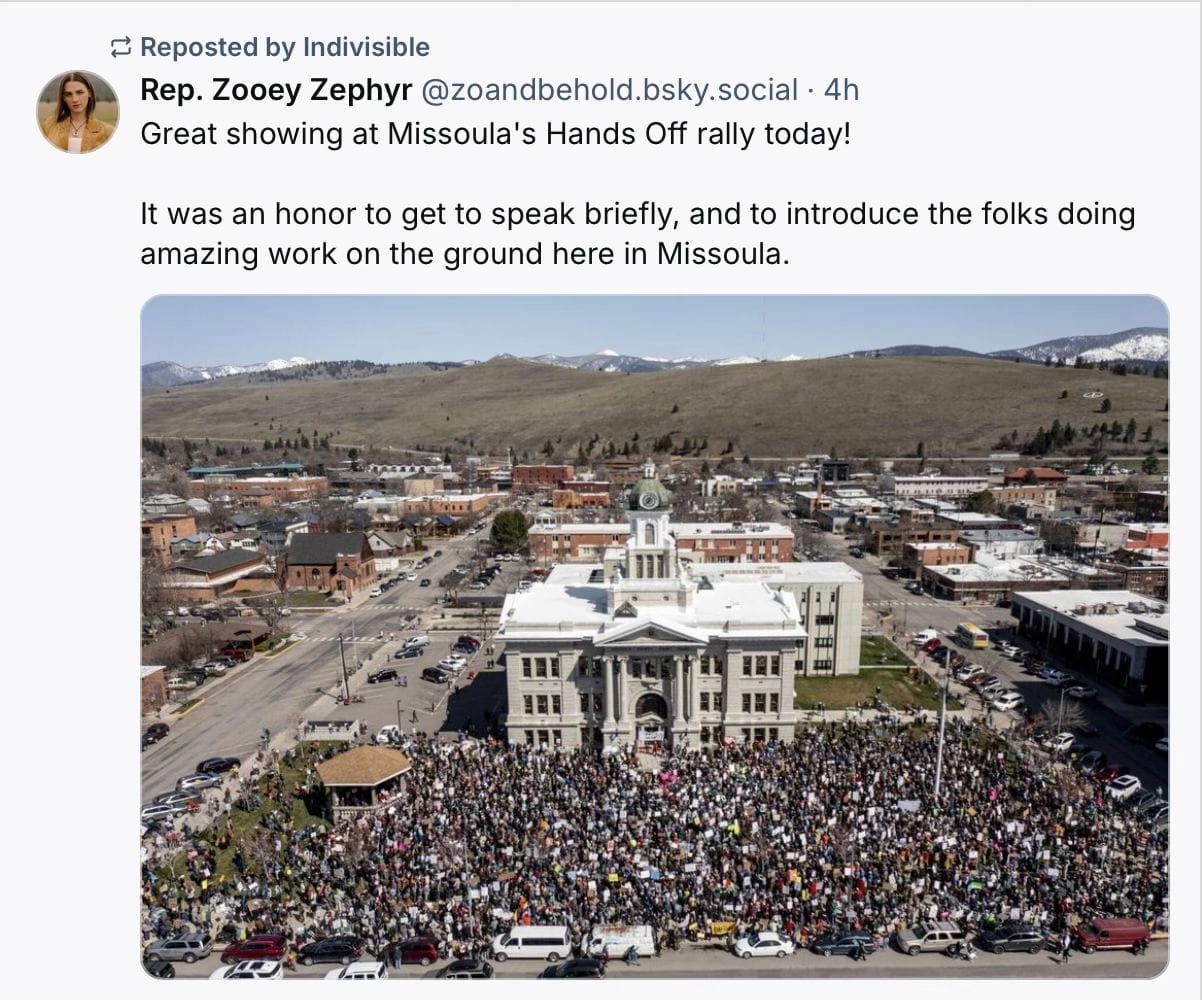
If one of us stands up, they can pick that person off. If ten or a hundred or a thousand, they can pick those people off. And they're picking off people--immigrants, dissidents--to make an example of them. But if ten million people stand up, they cannot stop us all. And today we are millions. We stand up with each other, for each other, and for those who cannot stand up because they are in ICE detention or a nursing home losing its funding or gulags in Guantanamo and El Salvador; we stand up for the people who just lost their AIDS treatment in Africa and those who just lost their jobs in the federal government here; for the trans girl who just wants to play softball and the educators who just want to teach history. We speak up with them to tell the real history, the true history, as histories are being erased and corrupted.
Are you in? Are you going to see this through with me? Are we in this together? Are you here for the duration? Tell me, are we in this together? Are we here for Abrego Garcia, who was illegally deported to El Salvador, for Rümeysa Öztürk, who was grabbed off the street by ICE? Are we here for those who cannot be here?
Right now Ukrainians are fighting for their freedom; Bangladeshis and Syrians are figuring out what comes after toppling an authoritarian regime; huge crowds are protesting in the streets of Turkey, Hungary, Serbia, the Republic of Georgia; Chile is governed by a young president who rose to prominence in student protests against a right-wing regime. South Korea just impeached and deposed a president who attempted a coup; the dictatorial former president of the Philippines is under arrest by the International Criminal Court for his human rights abuses. Across the world, time and time again, civil society has taken history into its own hands and written a better ending to an authoritarian story. Now it's our turn.
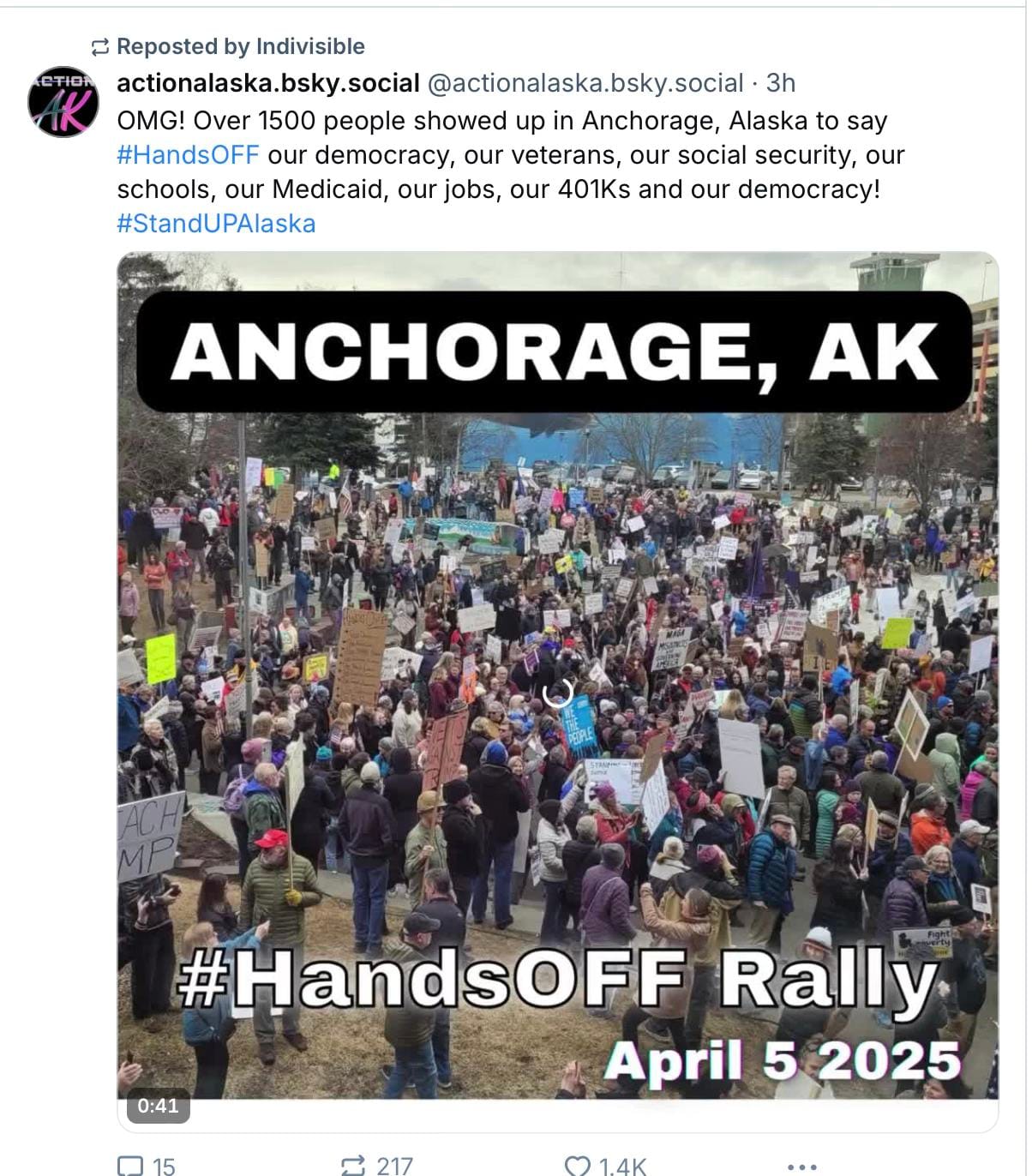
I think Americans grew complacent after almost 250 years of stable government, of thinking that things could not stray too far from what they always had been, that the laws would hold up, the systems would hold up. But they're breakable and they're being broken, and it's breaking the world, from human rights to the climate to the global economy. All this is happening because American voters stayed home. Trump got 31% of the vote, just a hair more than Kamala Harris, and 39% stayed home. A tiny bit more turnout, a tiny bit more participation, a tiny bit more concern, and we would not be here today, because those criminals would not be in the White House. We slept through the threat to our democracy, too many of us, but the destruction is waking a lot of people up. Stay awake.
I know we can do this. I don't know how. I don't know when. And can is not will. Whether we will or not depends on whether and how we show up.
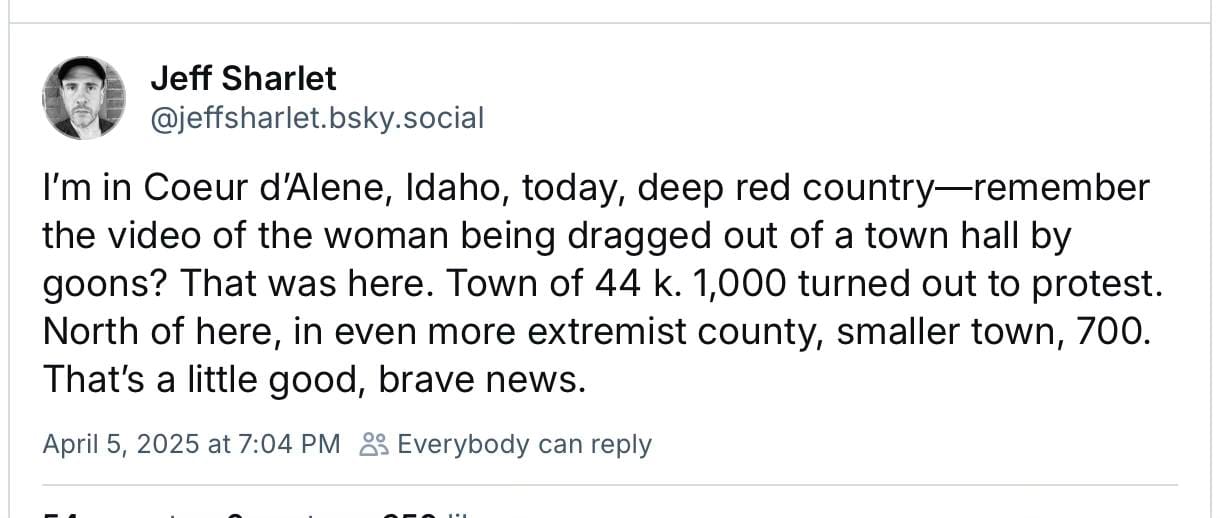
I talk a lot about hope. Hope is not optimism. Optimism says everything will be fine. Hope says we don't know what will happen but if we show up, if we stand up, we can maybe seize the chances. Hope makes friends with uncertainty, takes it by the hand and guides it toward our desires, hope grabs the possibilities. Hope recognizes the future is made in the present, it's made by what we do and don't do.
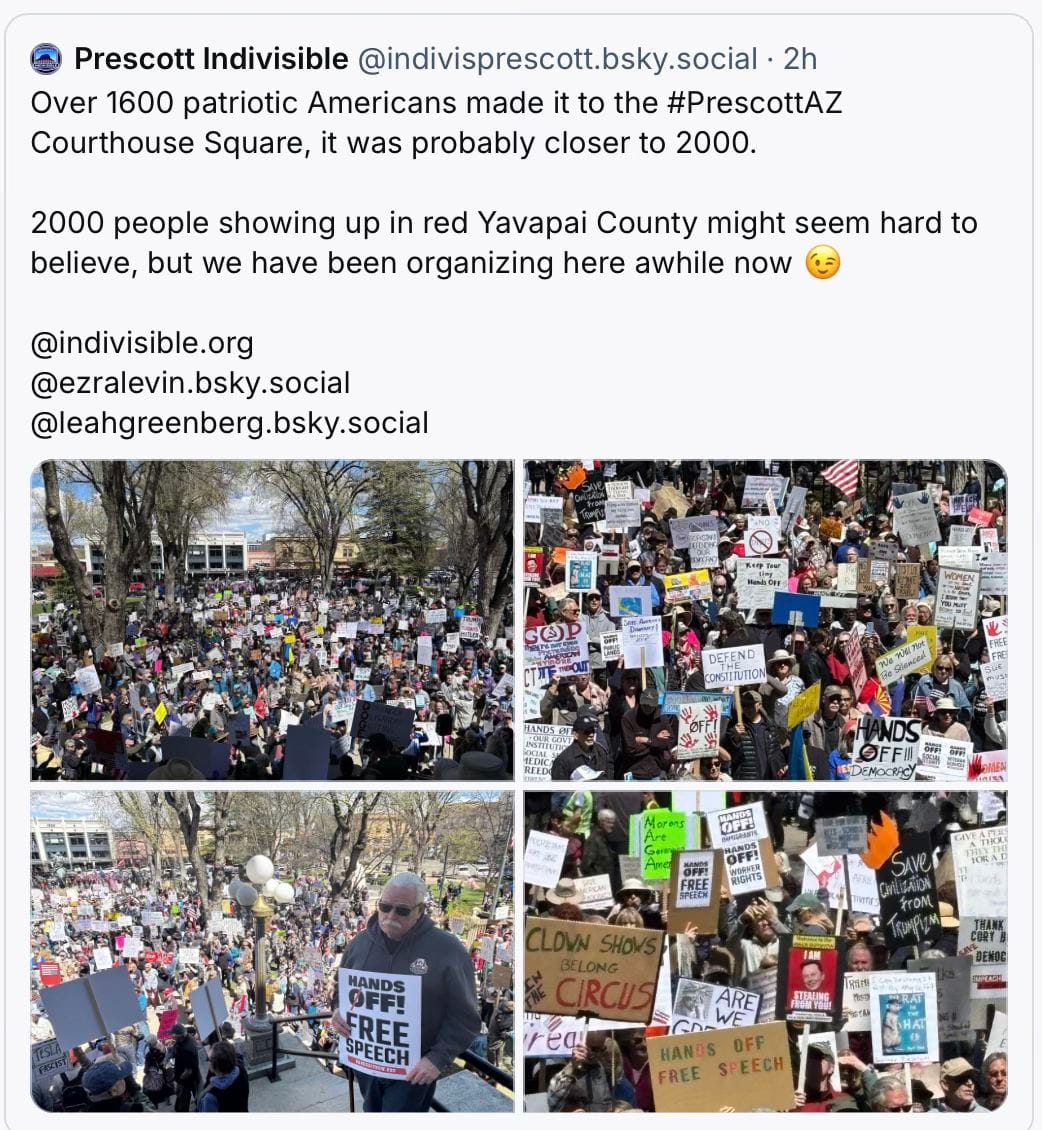
Nobody knows where we go from here. Today is just one day. It's a glorious day, an amazing day. But we need every one of you to go home and figure out what you do next. Be part of something larger. Find your people, find your place, find your skills. Some of us can be loud out in the streets. Some of us will quietly walk children to school whose immigrant parents are afraid to leave the house. Some of us will write letters and call representatives. Some who can afford to will donate, and believe me, money talks. And protest works--thank you Tesla Takedown, whose global day of action against Elon Musk was only a week ago. We are tanking the value of a huge corporation, because people have the power.
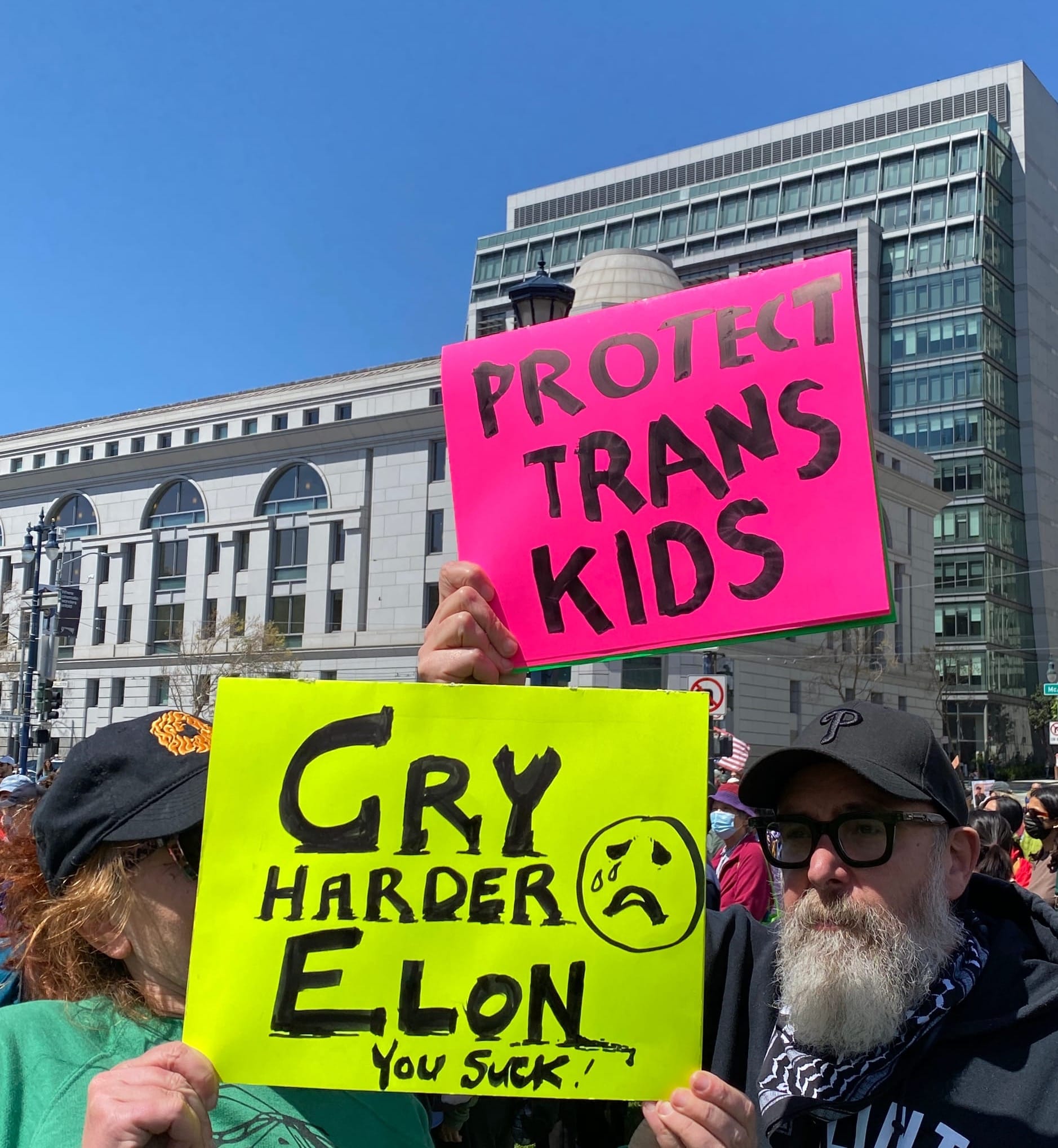
I want to end with two of the most beautiful insurrectionary sentences I know on this beautiful spring day, sentences drawn from nature. One goes "They tried to bury us, but they didn't know we were seeds." Seeds germinate underground, and they send up their shoots in the springtime. The other sentence goes, "They can cut down the flowers but they can't stop the spring." Be seeds, be the spring. Be the insurrection. Be civil society. Be what happens.
